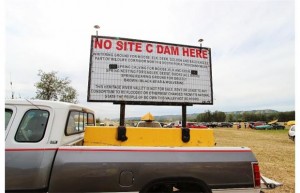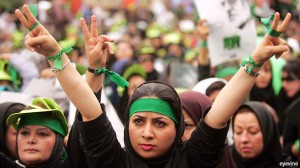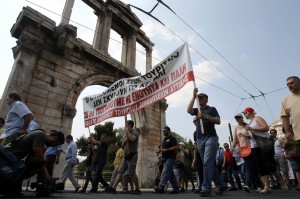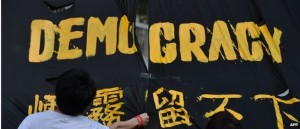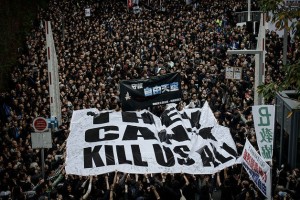Site C : support or not?
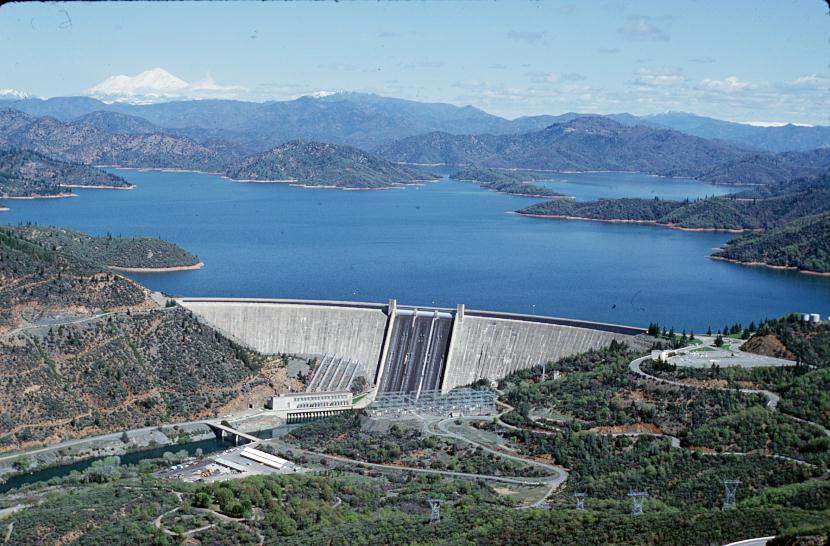 BC First nation chiefs are urging the Harper government to reject BC Hydro’s $8-billion Site C hydroelectric megaproject, since this project would flood 83 kilometers of the Peace River Valley and destroy farmland and wildlife habit. The main concern for first nation is that building the dam will cause adverse effect on fishing opportunities and impair their rights to use the area for ceremonial purposes.
BC First nation chiefs are urging the Harper government to reject BC Hydro’s $8-billion Site C hydroelectric megaproject, since this project would flood 83 kilometers of the Peace River Valley and destroy farmland and wildlife habit. The main concern for first nation is that building the dam will cause adverse effect on fishing opportunities and impair their rights to use the area for ceremonial purposes.
What is Site C?
Before analyzing how external environment will influence Site C, let’s take a look inside the project. BC Hydro’s Site C Clean Energy Project is a proposed third dam and hydroelectric generating station on the Peace River in northeast B.C. It would provide 1,100 megawatts (MW) of capacity, and produce about 5,100 gigawatt hours (GWh) of electricity each year — enough energy to power the equivalent of about 450,000 homes per year in B.C.
Current resistance and the First nation
It seems that the project is about making smart choices today to ensure a secure and reliable source of electricity for the future. However, we do need to take the issue of first nation into account. First nations, known as the first people living in the land, are supposed to gain respects from immigrations, since they are the really master of where we are living in the modern world. Simultaneously, first nation are facing the issues of lower living expectancy, poor governance, increasing crime, which make people become more concerned about aboriginal issues.
All these considerations make Site C in a dilemma. Site C, as a project relate to the benefit of public, does require environmental certification and other regulatory permits and approvals before it can proceed to construction. In addition, the Crown has a duty to consult and, where appropriate, accommodate Aboriginal groups.
External factors and solution
External factors act as an important role in company’s decision-making. From political factors to environmental factors, company can’t ignore any of these as they are vital for a company to build their reputation and they will play a decisive role for whether they will gain profits or not. To make things more important, they may even decide the implement of the project, from the most basic point of view. As for Site C, not gaining support from first nations will end up failure for the whole project. In this situation, company is supposed to consider more about the external issues and try to make adaptations. More importantly, they need to advertise themselves in order to make public aware of what the company is doing and what benefits public will gain in short term as well as in long term.
Prospect for Site C
Site C is trying its best to gain support. What Site C already done has made important differences, such as establishing an agricultural compensation fund to address the loss of agricultural land and enhance agriculture productivity in the region, implementing irrigation and drainage improvements to benefit agricultural productivity, etc. Public are waiting for a result for Site C and we hope the answer will be Yes.
Read more
SiteCProject
http://www.vancouversun.com/opinion/op-ed/Opinion+need+Site/10188814/story.html
Opinion: We need to get to yes on Site C: Project will provide clean, reliable and cost effective energy for more than 100 years

